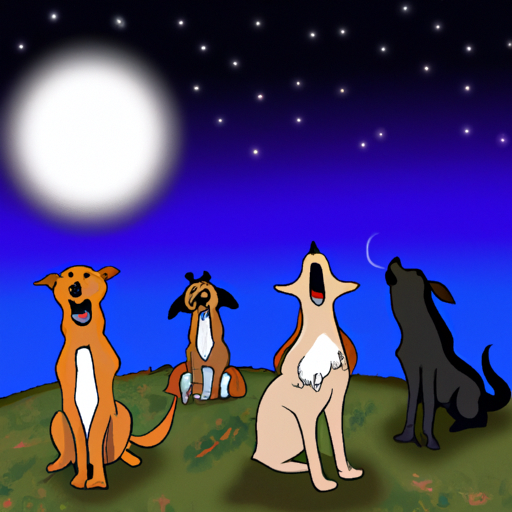Your Furry Friend’s Ancestral Echoes
You might have noticed your dog’s peculiar behavior- that eerie howl directed towards the moonlit sky. It might seem odd to you, but this howling is a primordial trait deeply rooted in their ancestry. Dogs, like their distant cousins, wolves, use howling as their primary form of communication. It’s their way of “talking” to other dogs or wolves, expressing their feelings, and marking their territory.
Decoding the Canine Language
Your dog’s howling might be telling you a lot more than you think. Despite their domestication, dogs still retain some of their wild instincts, which include howling.
- Loneliness: Dogs are pack animals, which means they thrive on company. When they feel lonely, they might howl to call out to their “pack” – that’s you and your family.
- Attention Seeking: Some dogs howl to get your attention, especially if they feel neglected.
- Response to High-Pitched Sounds: Dogs might also howl in response to certain high-pitched sounds like sirens, musical instruments, or even the TV.
How the Moon Factors In
Contrary to popular belief, dogs don’t howl at the moon. The moon doesn’t have any special effect on your dog’s behavior. This misconception might have come from the fact that dogs and wolves tend to be more active at night. Consequently, the moon, being the most prominent feature of the night sky, gets associated with their nocturnal activities.
Understanding the Howling Pattern
Here’s a table to help you understand your dog’s howling pattern better.
| Time of Howling | Possible Reason |
|---|---|
| Night | Active period, loneliness |
| During the Day | Attention seeking, response to sounds |
Curbing Howling If Needed
While howling is a natural canine behavior, it might become a problem if it gets excessive. Here are a few strategies to manage your dog’s howling:
- Regular Exercise: Ensure your dog is getting enough physical and mental stimulation. A tired dog is a happy dog!
- Training: You can train your dog to stop howling on command. However, always use positive reinforcement methods.
- Professional Help: If the howling persists, consider seeking help from a professional dog trainer or behaviorist.
Frequently Asked Questions
Q: Why does my dog howl more at night?
A: Dogs are more active at night. So, they might feel more inclined to communicate, which can include howling.
Q: Can I stop my dog from howling at the moon?
A: Yes, you can manage your dog’s howling through regular exercise, training, or professional help.
Q: Is howling harmful to my dog?
A: No, howling is a natural canine behavior. However, excessive howling might indicate some underlying issues, which should be addressed.



